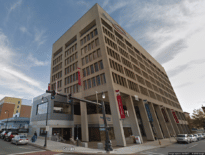
Tamara Small
As the year winds down, it’s time to make some predictions for commercial real estate in 2019. In short, 2018 was another banner year for the industry. Its strength reflects the overall economy, as noted by Doug Poutasse of Bentall Kennedy at the recent NAIOP Massachusetts Market Forecast. Small business sentiment is at an all-time high, consumer confidence is at its second highest, and the unemployment rate is the lowest it has been in 49 years. With all of these many years of success, it’s hard not to wonder when the music will stop.
Warning signs are on the horizon. Construction inflation is at 6.5 percent in the Boston market – higher than the rest of the nation. Federal interest rates are expected to rise and trade wars, weakening growth abroad and stock market declines create some uncertainty. However, market fundamentals remain strong and most economists believe growth will continue through 2019.
In Massachusetts knowledge-based industries, combined with a highly educated workforce, are driving this prolonged economic growth. Not surprisingly, these fields are also fueling much of the local real estate growth. There is no better market that reflects this than Cambridge.
According to Peter Bekarian of JLL, the office vacancy rate in East Cambridge is 0.9 percent and the lab vacancy rate is at 0.8 percent. Tenants are growing out of space at a rapid rate and, while development in Cambridge continues, demand outpaces supply. In fact, 100 percent of the new product being delivered in 2019 is already fully leased. Not until 2020 will any new product be available in Cambridge – and even some of that has already been leased.
In response, existing spaces are gaining new life. Whether it’s the conversion of the Star Market in Central Square to office space, parking garage to lab space at 245 First St., or the third floor of the CambridgeSide Galleria to office space, every inch of space in Cambridge is in demand.
Looking ahead to 2019, the success of Cambridge will bring opportunities to suburban markets. In recent years, more and more companies have been relocating from the suburbs to urban areas in a race to attract talent. Companies like GE, Continuum and Converse were frequently cited as proof of the demise of the suburban market. However, with historically low vacancy rates and with lab rents in East Cambridge now in the high $80s and office rents in the high $90s, Cambridge may not be an option for many companies. With more than 1 million square feet of lab space available in the suburbs, younger companies, in particular, looking for shorter lease terms could find tremendous opportunities in places like Waltham, Watertown, Burlington and Westwood – among others.
Industrial Market Will Continue To Thrive
There is no doubt that the industrial market will continue to thrive in 2019. Vacancy rates are at an all-time low of 6 percent. The demand for “last-mile” facilities near high-density urban centers is driving up values. The changing retail market and the continued growth of e-commerce means the demand for industrial space will continue for the foreseeable future.
Finally, all of that talent driving the Commonwealth’s economic growth needs a place to call home. Unfortunately, Greater Boston remains one of the most expensive housing markets in the nation. The shortage of workforce housing is a serious threat to the local economy. Permitting challenges, lengthy appeals, local resistance to new housing and high construction costs continue to hinder housing production. In 2019, legislative leaders and local officials need to work together to find creative solutions to this housing crisis, including the passage of the Housing Choice legislation, which would allow towns to change certain zoning rules with a simple majority. New incentives that make it financially feasible to build workforce housing are needed and public-private partnerships for student housing should be welcomed in order to free up existing housing for middle-income families.
Overall, while challenges loom on the horizon, the commercial real estate market remains strong and continued growth is expected through 2019. As for 2020, seatbelts may be required!
Tamara Small takes over as CEO of NAIOP Massachusetts – The Commercial Real Estate Development Association on Jan. 1.




 |
| 
